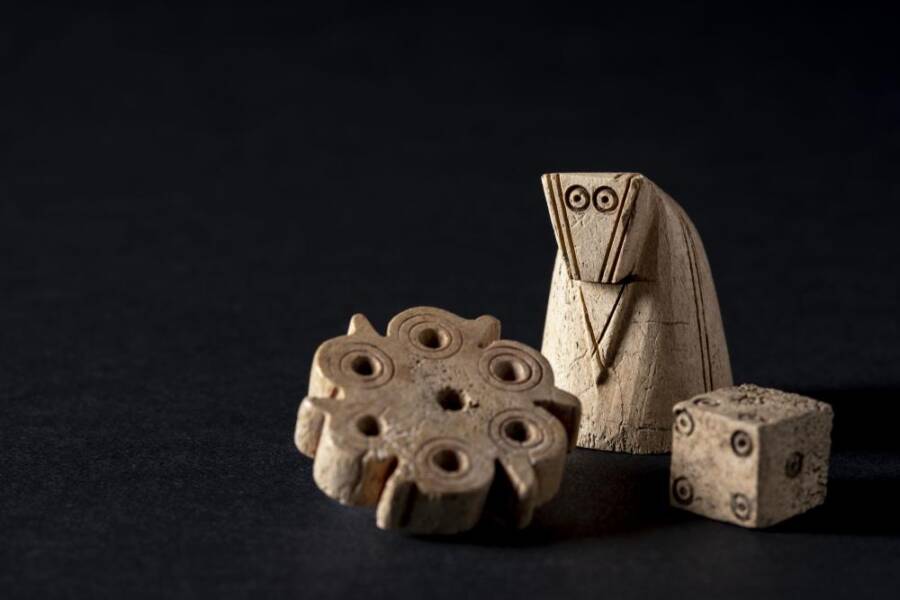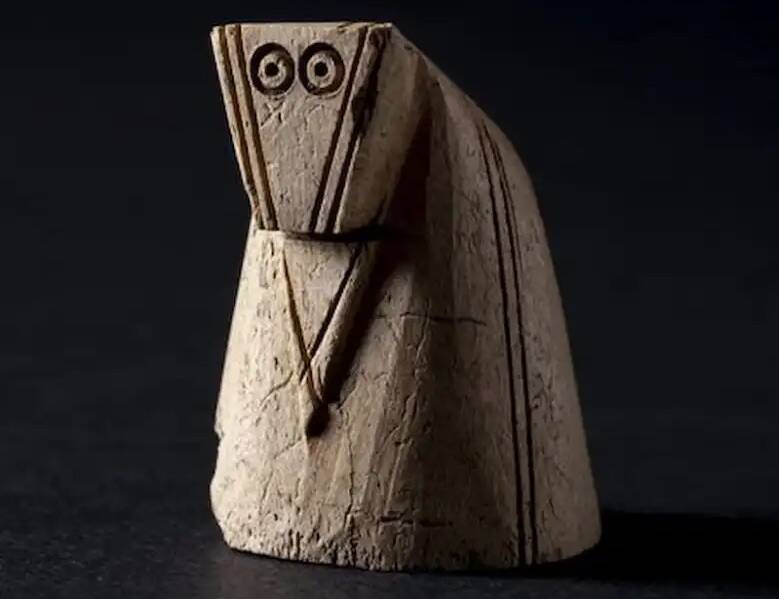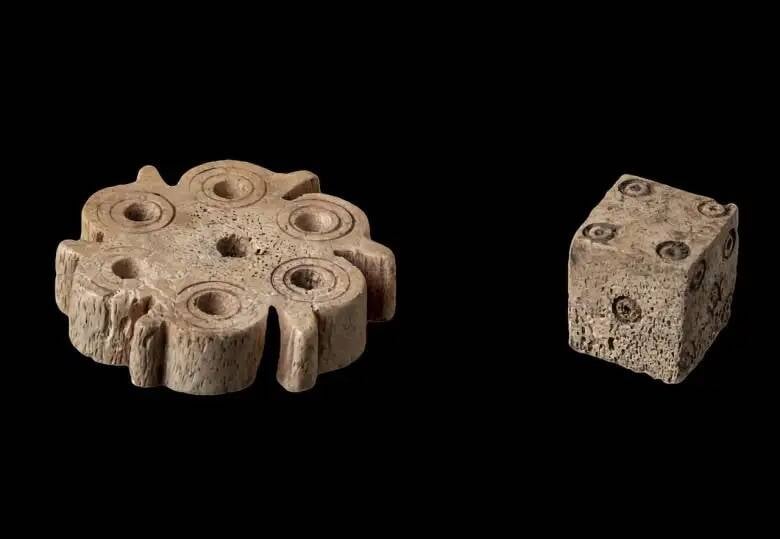These intricately carved gaming pieces lay trapped under debris for centuries — and they're in astonishingly good condition.

Victor Brigola/University of TübingenThe collection of medieval game pieces unearthed in Germany.
At the site of a forgotten castle complex at Burgstein in southern Germany, archaeologists recently discovered several sets of rare medieval gaming pieces.
Among the collection were a six-sided die, gaming tokens, and an incredibly well-preserved chess piece. According to researchers, the pieces even shine when held at different angles, showing just how remarkable their condition is even after spending centuries hidden away.
Not only is the discovery impressive in itself, but it also highlights chess’ cultural importance in medieval Europe.
An Ancient Game Collection Dating Back 1,000 Years
The excavation was carried out by an international team from the University of Tübingen, the State Office for Monument Preservation (LAD) in Baden-Württemberg, and the German Archaeological Institute (DAI).
While exploring the ruins of a long-forgotten castle, they discovered the collection of gaming pieces under a collapsed wall.
“They were lying under the debris of a wall where they were lost or hidden in the Middle Ages,” said the University of Tübingen’s Dr. Michael Kienzle in a press release.
His colleague from the university, Dr. Flavia Venditti, added, “Under the microscope, a typical sheen from holding and moving the pieces can be seen.”
The most notable piece found in the rubble was a horse-shaped knight figure used in chess, which was intricately carved and dates to a time when the game was first taking root in Europe.

Victor Brigola/University of TübingenA detail of the medieval chess piece.
“In the Middle Ages, chess was one of the seven skills that a good knight should master,” said Dr. Jonathan Scheschkewitz of LAD. “It is therefore not surprising that known finds mostly come from castles.”
Chess has roots in a game called chaturanga, which originated in India. It eventually spread through the Muslim world, evolving as it did so until it reached Europe roughly 1,000 years ago.
“The discovery of an entire games collection [from] the 11th/12th century came as a complete surprise to us, and the horse-shaped knight piece is a real highlight,” said Dr. Lukas Werther of the DAI.
Fascinating Insights Into The World Of Medieval Gaming
In addition to the remarkably well-preserved chess piece, researchers found four flower-shaped tokens and a six-sided die. Like the knight figure, these pieces were made using high-quality materials — in this case, antlers — and carved with intricate designs.

Victor Brigola/University of TübingenThe flower-shaped token and dice found at the site.
There were also traces of red paint on some of the pieces, which are currently being chemically analyzed.
Such well-preserved gaming pieces from before the 13th century C.E. are exceptionally rare across central Europe. Researchers are hoping that further analysis will reveal new information about the habits of medieval Europeans, the significance of certain games, and the origins of chess.
The public, meanwhile, will have a chance to see these ancient gaming pieces at two upcoming exhibitions: “Unearthed! Knights and Castles in the Echaz Valley” in Pfullingen, starting June 15, 2024, and the Great State Exhibition “THE hidden LÄND” in Stuttgart, which begins Sept. 13, 2024.
After reading about the discovery of these medieval gaming pieces in Germany, read about nine incredibly strange medieval customs. Or, read about chess champion Bobby Fischer’s descent into madness.





